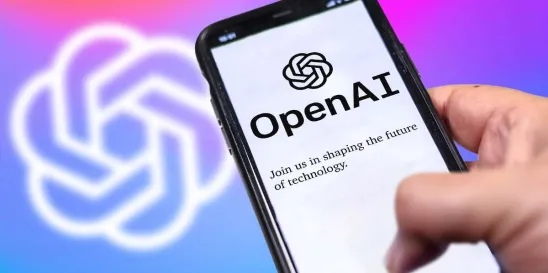Last week, OpenAI rolled out ChatGPT Team, a flexible subscription structure for small-to-medium sized businesses (with two or more users) that are not large enough to warrant the expense of a ChatGPT Enterprise subscription (which requires a minimum of 150 licensed users). Despite being less expensive than its Enterprise counterpart, ChatGPT Team provides for the use of the latest OpenAI models with the robust privacy, security and confidentiality protections that previously only applied to the ChatGPT Enterprise subscription and which are far more protective than the terms that govern ordinary personal accounts. This development could be the proverbial “game changer” for smaller businesses, as for the first time, they can have access to tools previously only available to OpenAI Enterprise customers, under OpenAI’s more favorable Business Terms and the privacy policies listed on the Enterprise Privacy page, without making the financial or technical commitment required under an Enterprise relationship.
Thus, for example, ChatGPT Team customers would be covered by the Business Terms’ non-training commitment (OpenAI’s Team announcement states: “We never train on your business data or conversations”), and by other data security controls, as well as Open AI’s “Copyright Shield,” which offers indemnity for customers in the event that a generated output infringes third party IP.[1] Moreover, under the enterprise-level privacy protections, customers can also create custom GPT models that are for in-house use and not shared with anyone else.
As noted above, until now, the protections under the OpenAI Business Terms were likely beyond reach for many small and medium sized businesses, either because of the financial commitment required by OpenAI’s Enterprise agreement or because of the unavailability of the technical infrastructure necessary to implement the OpenAI API Service. In the past, such smaller entities might resort to having employees use free or paid OpenAI products under individual accounts, with internal precautions (like restrictive AI policies) in place to avoid confidentiality and privacy concerns.[2]
As we’ve seen over the last year, one generative AI provider’s rollout of a new product, tool or contractual protection often results in other providers following suit. Indeed, earlier this week Microsoft announced that it is “expanding Copilot for Microsoft 365 availability to small and medium-sized businesses.” With businesses of all sizes using, testing or developing custom GAI products to stay abreast with the competition, we will watch for future announcements from other providers about more flexible licensing plans for small-to-medium sized businesses.
[1] The Copyright Shield is subject to certain exceptions and requirements. See here for our article discussing its November 2023 launch.
[2] Despite being a paid subscription, a ChatGPT “Plus” account does not offer the same protections offered under the OpenAI Business Terms.



 />i
/>i

